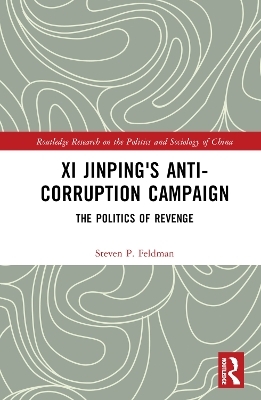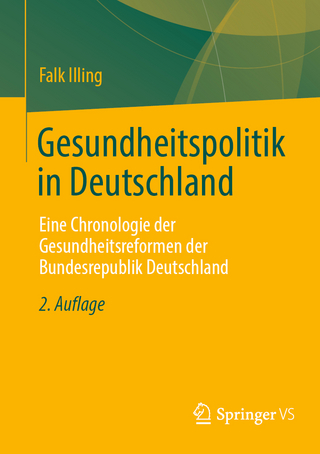
Xi Jinping's Anticorruption Campaign
The Politics of Revenge
Seiten
2023
Routledge (Verlag)
978-1-032-36269-4 (ISBN)
Routledge (Verlag)
978-1-032-36269-4 (ISBN)
Through empirical analysis and conceptual development, this book analyses the political psychology of Xi Jinping's Anti-Corruption Campaign and its role in the Chinese political system.
Through empirical analysis and conceptual development, this book analyzes the political psychology of Xi Jinping's Anticorruption Campaign and its role in the Chinese political system.
Using Nietzsche’s concept of ressentiment and data collected from direct fieldwork, the book analyzes the Chinese Communist Party (CCP) dictatorship, revealing that it is prone to extremes, through ideology or corruption, and highlights how the Party’s attempts to address one extreme only leads to the rise of another. In turn, it examines the Anticorruption Campaign in multiple ways including its use to increase the role of ideology in Chinese society, how it functions to concentrate Xi's power, its cultural form as a status reversal ritual, and its continuity with previous communist campaigns and ancient Chinese political traditions. Through each of these analyses, the book identifies crucial mechanisms through which the CCP maintains power through interrelated policies, actions, and their emotional effects.
Providing a vital understanding of the CCP, this book will be an invaluable resource to students and scholars of Chinese politics, as well as diplomats and policymakers on China.
Through empirical analysis and conceptual development, this book analyzes the political psychology of Xi Jinping's Anticorruption Campaign and its role in the Chinese political system.
Using Nietzsche’s concept of ressentiment and data collected from direct fieldwork, the book analyzes the Chinese Communist Party (CCP) dictatorship, revealing that it is prone to extremes, through ideology or corruption, and highlights how the Party’s attempts to address one extreme only leads to the rise of another. In turn, it examines the Anticorruption Campaign in multiple ways including its use to increase the role of ideology in Chinese society, how it functions to concentrate Xi's power, its cultural form as a status reversal ritual, and its continuity with previous communist campaigns and ancient Chinese political traditions. Through each of these analyses, the book identifies crucial mechanisms through which the CCP maintains power through interrelated policies, actions, and their emotional effects.
Providing a vital understanding of the CCP, this book will be an invaluable resource to students and scholars of Chinese politics, as well as diplomats and policymakers on China.
Steven P. Feldman is Professor Emeritus of Business Ethics, Case Western Reserve University, USA. His previous books on China are Dictatorship by Degrees: Xi Jinping in China (2021) and Trouble in the Middle: American-Chinese Business Relations Conflict, Culture, and Ethics (2013).
1. The Theory of Ressentiment 2. Literature Review on "Anticorruption" Campaigns 3. Corruption and Ressentiment 4. Ideology and Corruption 5. Power and Anticorruption 6. Campaign as Ritual 7. The Good Emperor and the Campaign 8. Why an Anticorruption Campaign and Not the Rule of Law?
| Erscheinungsdatum | 21.04.2023 |
|---|---|
| Reihe/Serie | Routledge Research on the Politics and Sociology of China |
| Verlagsort | London |
| Sprache | englisch |
| Maße | 156 x 234 mm |
| Gewicht | 220 g |
| Themenwelt | Geisteswissenschaften ► Philosophie |
| Sozialwissenschaften ► Politik / Verwaltung ► Politische Systeme | |
| Sozialwissenschaften ► Politik / Verwaltung ► Politische Theorie | |
| Sozialwissenschaften ► Soziologie ► Spezielle Soziologien | |
| ISBN-10 | 1-032-36269-3 / 1032362693 |
| ISBN-13 | 978-1-032-36269-4 / 9781032362694 |
| Zustand | Neuware |
| Informationen gemäß Produktsicherheitsverordnung (GPSR) | |
| Haben Sie eine Frage zum Produkt? |
Mehr entdecken
aus dem Bereich
aus dem Bereich
Eine Chronologie der Gesundheitsreformen der Bundesrepublik …
Buch | Softcover (2022)
Springer Fachmedien Wiesbaden GmbH (Verlag)
CHF 83,95


